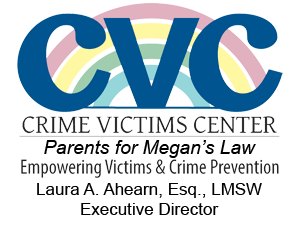TOGETHER WE CAN STOP HATE CRIMES (While a Suffolk panel probes the issue, more can be done to detect and educate)
Newsday/Laura Ahearn
It's been more than two years since Marcelo Lucero lay dying on a Patchogue street, thevictim of a brutal, racially motivated stabbing.
His senseless murder stunned the people of Suffolk County, shocked the nation and galvanizedmany in their resolve to take action to combat hate crime.
Lucero's name continues to be used as a rallying cry -- by some, for meaningful change, butby others, for personal or political agendas well outside of the scope of improving the mechanismsfor reporting hate crime and easing the suffering of victims. This tragedy should have servedas a catalyst for all to say, Never again, but it has been exploited by some, eager to garnerpublicity, bereft of collaborative solutions and seeking only to point fingers. Such divisivepolitical posturing fuels mistrust, stirs community unrest and acts to polarize those we need toconquer hate: the community, the police department and the government. Worse, it is the largestimpediment to implementing viable solutions to help victims.
It's also been more than two years since the county legislature created a task force torecommend how to combat hate in Suffolk. Sadly, the task force has become entangled in politicalquagmires that have only delayed its own progress toward a final report -- again extended, now toJune 30. We cannot afford further delay, or to deny Suffolk residents the justice and services theyare entitled to, when it is in our power to do something about it today.
Hate crimes are violations of law committed against individuals or property based upon abelief or perception regarding the victims' race, color, national origin, ancestry, gender,religion, age, disability or sexual orientation -- regardless of whether the belief or perceptionis correct. We are all potential victims.
Hate is a powerful and resilient enemy, a cancer immune to words without decisive action. Andwe must accept that we may never be able to eliminate the poison of prejudice from the hearts ofsome, who have harbored it for so long, and prevent every hate crime. But prejudice is a learnedaffliction, and what is learned can be changed.
So we must seek to preserve, nurture and encourage the innocence and acceptance of ourchildren through educational programs that teach that our real strength is in our diversity.Classrooms must be places where different religions, languages, customs, sexual orientations, skincolors and countries of origin are celebrated, and where understanding and acceptance arevalued.
Those we entrust with our children must receive hate crime-prevention, diversity andsensitivity training -- this should be a requirement for teacher and administrator certification.Programs encouraging diversity and acceptance should be implemented in every school, taught andreinforced each year, from kindergarten through 12th grade. State licensed professionals such asteachers and medical providers, as well as human service agencies that contract with thegovernment, must be required to report suspicions of hate crimes to law enforcement.
In Suffolk, a comprehensive analysis of hate crime-incident demographics must be ongoing bythe county Police Department Hate Crimes Unit, to accurately plan and implement effectiveprevention and community education programs. Rapid demographic changes can be a precursor toneighborhood discord, and these areas should be identified and prevention initiatives and resourcesdeployed.
We shouldn't forget the missteps of the past, but we must focus on, recognize and build uponthe many positive strides that are being made by law enforcement, community organizations andgovernment in Suffolk County. Both the executive and legislative branches have sought solutions,and law enforcement has implemented many of them to overcome barriers to reporting and providecomprehensive victims' services.
Police can now communicate in more than 170 different languages. Increased community outreachand collaboration have significantly improved support for victims. Cultural diversity, sensitivityand hate crime training for police officers has been measurably enhanced and expanded.
Only by working together can we hope to foster trust and combat hate. We must look totransform the negative energy expended advancing political agendas into a positive force for thegreater good, for victims today and for the children of tomorrow.
Laura A. Ahearn is executive director of the Suffolk County Crime Victims Center and a memberof the Suffolk County Hate Crimes Task Force.
You can share this story by using your social accounts:

Comments are closed.